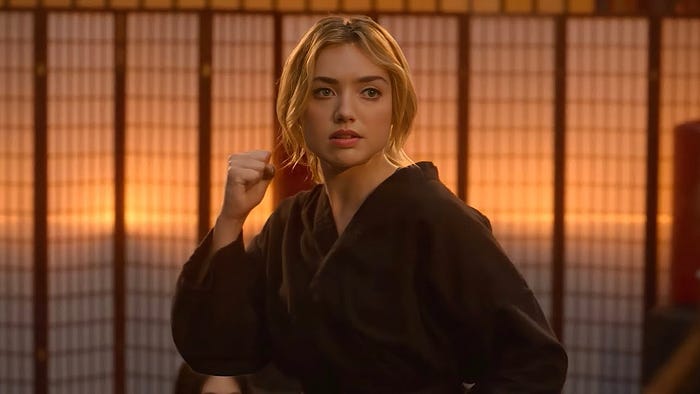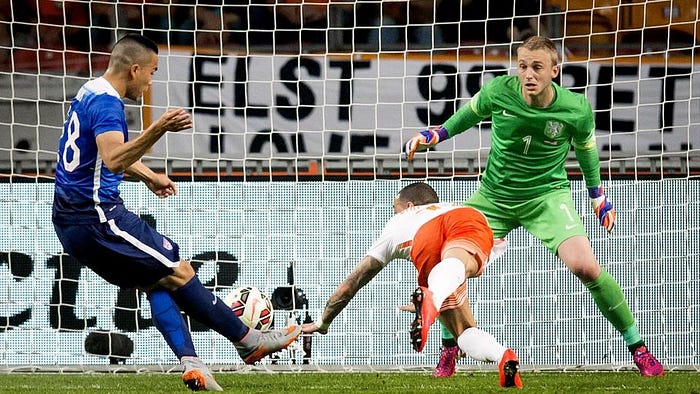I contributed a couple entries to this TV Fanatic crowd-sourced article about best ensembles on TV.

My top pick: Reboot (Hulu)
Reboot is about the coexistence of different generations of artists. In that vein, who could be better epitomize that clash than Paul Reiser and Rachel Bloom as an estranged father and daughter entrusted with co-running a sitcom?
Reiser is an old-school 90s sitcom star with a comic delivery that borrows a little from Borscht Belt comedy. Rachel Bloom made her way to TV fame as the star and co-creator of Crazy Ex-Girlfriend via YouTube stardom that turned musical theater conventions on their head.
The pair is complemented by a writing room that echoes Bloom’s Gen Z approach to artistic merit with Riser’s Borscht Belt big laughs approach, and the combination is hilarious.
Meanwhile on the show’s set, Keegan-Michael Key, Judy Greer, Johnny Knoxville (who thought of that casting choice?), and Calum Worthy play a quartet of has-been actors who form a found family with healthy doses of comedy and heart.
Other picks:
Ghosts (CBS): The eight actors who play the ghosts weren’t particularly hot on casting lists before this show. In an ideal world, they should be now. Each member of the octet provides such pitch-perfect character beats to create this great whirlwind of humor. It’s like your favorite comedic duo expanded by six with the rat-a-tat banter still operating like clockwork. Of course, credit goes to Sam (Rose McIver) and Jay (Utkarsh Ambudkar) for bringing the heart and grounding the plots. (I also wrote about Ghosts here)
Star Trek Picard (Paramount Plus): Alison Pill, Michelle Hurd, and Santiago Cabrera bring a sense of visceral edge that I’ve never seen in Star Trek before. Pill’s displays an antsy-ness at being in space that seems pretty logical for most humans, but somehow Star Trek has never shown that side of the 24th century populance before. It makes sense: Star Trek: The Next Generation was designed to appeal to a broad audience in the 1980s so the actors weren’t aiming for high drama, but when the TNG cast is introduced they also are up to that higher bar.
Yellowjackets (Showtime): The show centers around a plane crash involving a teenage soccer in the 90s, and the way the survivors are traumatized all the way through their adulthoods. How fitting that the show cast three of the most promising ingenues of the 90s as the roles of the four main survivors: Melanie Lynskey, Christina Ricci and Juliette Lewis. All three have long been underrated actresses and deserve to be attached to one of the hit shows on television. But that’s half the battle: The show also succeeds in casting matching teenage versions of these characters with all their drama.
Winning Time (HBO)-When you have two Oscar winners in your cast (Adrien Brody and Sally Field) and neither of them are central characters, then you’ve got a pretty deep talent pool. This docudrama about the Lakers 1980 championship features John C. Reilly in one of the most complex roles of his storied career as larger-than-life team owner Jerry Buss. Quincy Isaiah shines here in his first screen credit playing Magic Johnson as a bright-eyed superstar that’s still in the incubation phase. His main rival for the starting position is Norm Nixon played with swagger by the real-life figure’s son, DeVaughn. Surrounding them are a murderer’s row of character actors in Jerry West, Hadley Robinson, Jason Segel (did not see that coming), Tracey Letts, and the aforementioned Brody alongside Field who makes a strong impression with little screen time.
Ramy (Hulu): Ramy Yousef just plays a less self-assured version of himself, but there’s so much idiosyncrasy in the characters around him that this show deserves a place. Watching this show and not knowing the names of all the actors is a good reminder of the scarcity of Middle-Eastern actors with name recognition. Ramy’s parents are played by Amr Waked (Syriana, Salmon Fishing in Yemen) and Hiam Abbass (The Visitor) who have both done enough good work to be names among more astute American audiences, but everyone on this show deserves a brighter future. It also helps that the show format gives characters like Dena (May Calamaway), Uncle Naseem (Laith Nakli), and Ahmed (Dave Marheje) an episode in the spotlight or two.
The White Lotus (HBO)-This one is going to pop up on a lot of my lists because you can't make a TV series that works on so many layers without doing so many things right. This show has Lost/Arrested Development levels of Easter Egg placement and you better believe that the actors are in on the intricacies of each character. The show's brightest star is Emmy-winner Jennifer Coolidge but deserves a lot of credit for finding a new tone of deadpan for Aubrey Plaza, and making spaces for the largely unknown-to-American-audiences Italian newbies.


